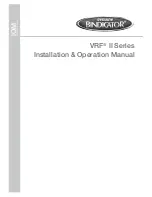
26
TK-790/
(
B
)
/H
(
B
)
CIRCUIT DESCRIPTION
1. Transmitter Circuit
1-1. Microphone amplifier section (X57 B/3)
The audio input from the microphone is attenuated by
VR501 and passes through the active high-pass filter (pre-
emphasis circuit) in IC505, the compressor circuit in IC504,
the IDC (limiter circuit) in IC505, the summing amplifier cir-
cuit in IC510, the active low-pass filter in IC510, the sum-
ming amplifier circuit in IC513, and the D/A converter in
IC512, and is output from the CN502 to the CN202. Q504 is
used as a microphone mute switch.
SUM
AMP
SUM
AMP
DAC
LPF
IDC
COMP
HPF
MUTE
SW
MIC
VR501
IC513 IC510
IC510
IC505
IC504
IC505
Q504
PC
MO
IC512
CONTROL UNIT X57 B/3
to TX VCO
Fig. 1
1-2. Modulation section (X57 A/3)
The signal from the MO terminal of the CN202 goes to
D305 in the VCO, and the VCO is directly modulated. The
transmit signal output from the VCO passes through switch
D306, is amplified by Q201 and Q204, and is output from
the CN203 to the CN1.
TX-VCO
Q201
Q204
AMP
AMP
SW
DO
APC
TX-RX UNIT X57 A/3
D306
8T
MO
Fig. 2
1-3. Final amplifier section (X57 C/3) : TK-790/(B)
The signal from the DO terminal of the CN1 is applied to
drive the power module and the output is fed through trans-
mit/receive switching diode ; D3,D4, low-pass filter, and CM
coupler to the antenna connector.
CM coupler is a line for detecting traveling and reflected
waves. Traveling waves are detected by D5 and fed through
the APC control to differential amplifiers Q5, which compare
the signal level with the reference voltage of PC tuned.
The output is amplified by DC amplifier Q1 to control APC
DC amplifier Q2. Q1 controls the power supply voltage for
the power module, keeping the transmitter output constant.
To protect the transmitter power amplifier stages, there is
protection circuit, against abnormal antenna loading.
If an abnormal antenna load is connected the reflected
wave level increases. Reflected waves are detected by D6
and the output level is fed to the differential amplifier, lead-
ing to the transmitter output power being reduced in the
way already described.
POWER
MODULE
ANT
SW
FWD
DET
REF
DET
LPF
LPF
CM
coupler
APC
DRIVE
DC
AMP
DC
AMP
Differential
AMP
8T
B
DB
Q1
Q3
D3,4
D5
D6
VR1
Q5
Q6
PC
+B
DO
FINAL UNIT (X57 C/3)
Fig. 3
1-4. Final amplifier section (X45) : TK-790H(B)
The signal from the DO terminal of the CN1 is applied to
drive the power module, and the output is divided into two
signals which are amplified by Q6 and Q7. The signals are
mixed and the resulting signal is fed through CM coupler,
transmit/receive switching relay ; K1, and the low-pass filter
to the antenna connector.
CM coupler is a line for detecting traveling and reflected
waves. Traveling waves are detected by D1, D3 and fed
through the APC control to differential amplifiers Q5, which
compare the signal level with the reference voltage of PC
tuned.
The output is amplified by DC amplifier Q4 to control APC
DC amplifier Q3. Q4 controls the power supply voltage for
the power module, keeping the transmitter output constant.
To protect the transmitter power amplifier stages, there are
two protection circuits which one is against abnormal an-
tenna loading and the other is against overheating.
If an abnormal antenna load is connected, the reflected
wave level increases. Reflected waves are detected by D2,
D3 and the output level is fed to the differential amplifier Q5,
leading to the transmitter output power being reduced in the
way already described. If an abnormal high temperature is
detected by the thermistor TH1, DC SW Q1 is made to re-
duce the reference voltage of the PC tuned. This also leads
to the transmitter output power being reduced. Antenna
switching is done by a relay K1 with 8R.
POWER
MODULE
AMP
FWD
DET
REF
DET
LPF
ANT
SW
CM
coupler
APC
DRIVE
DC
AMP
DC
AMP
Differential
AMP
B
DB
Q3
Q4
Q6
D1
D2
VR1
Q5
Q2
PC
+B
FINAL UNIT (X45)
AMP
Q7
Rectified
Diode
K1
DC
SW
DC
SW
DC
SW
Q1
TH1
D3
Q9
Q8
8R
8T
IC1
DO
FIg. 4
















































